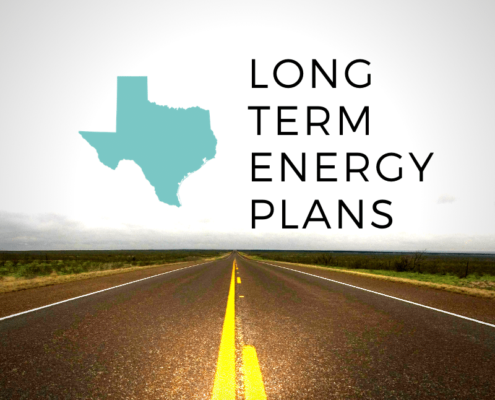Last Updated on June 15, 2022 by Mary Pressler
Solar Savings in Texas
According to the US Energy Information Administration (EIA), the average Texan home uses 14,000 kilowatt-hours per year. Local electricity prices are relatively low, and the residential sector is charged around 11 cents/kWh. Considering these values, annual electricity bills add up around $1,540 for the average Texan home.
Texas offers many incentive programs for residential solar power systems and they are managed separately by each Transmission and Distribution Utility (TDU), regardless of your Retail Electricity Provider (REP). The Investment Tax Credit (ITC) for solar power systems is the main exception, being a federal incentive.
This guide describes the main incentives for solar power and energy efficiency that are available in Texas. Keep in mind that incentive programs are constantly changing, so make you you also check the incentive websites directly before a purchase decision.
Texas Solar Incentives
Texas allows both solar leases and solar PPAs (Power Purchase Agreement), giving homeowners additional purchase options beyond a cash purchase or loan financing.
Texas used to have a Renewable Portfolio Standard (RPS), and local utilities were subject to a renewable energy target of 3% by 2015. However, this target was met very quickly due to the rapid growth of wind power in Texas, and a new target has not been established. Since there is no active RPS law in Texas, state-level incentives for solar power are limited.
Texas Energy Tax Credits
Since Texas does not have a state income tax, providing a state tax credit for solar panels is not possible. However, there is a property tax exemption for solar power systems, which works as follows:
- A solar panel system makes your home more valuable, typically by $20,000 or more.
- However, in Texas you are not taxed for the increase in home value.
Unfortunately, solar panels have no such exemption for the sales tax in Texas. Depending on where you live, this tax adds between 6.25% and 8.25% to the cost of your solar PV system.
The Investment Tax Credit (ITC) for solar power is not a Texas incentive, strictly speaking, but it counts. If you invest in a solar power system for a home or business, you can deduct a percentage of its cost from federal taxes. The incentive has been 30% for many years, but it will be gradually phased out between 2020 and 2022, according to the following table:
| Year | Solar ITC Rate |
| 2019 | 30% |
| 2020 | 26% |
| 2021 | 22% |
| 2022 | 10% for businesses only (0% for homes) |
If your solar power system includes batteries, they are covered by the ITC if they get at least 75% of their charge from solar panels. Also, the percentage of the ITC that applies for batteries is proportional to the solar charging percentage:
| Battery Charge Percentage from Solar Panels | Applicable ITC |
| Below 75% | 0% |
| 75% | 22.5% |
| 80% | 24% |
| 85% | 25.5% |
| 90% | 27% |
| 95% | 28.5% |
| 100% | 30% |
As the solar ITC is phased out between 2020 and 2022, the battery ITC will be phased out in the same proportion.
Texas Solar Panel Rebates by Utility Provider
As mentioned above, Texas lacks a statewide rebate program for solar power systems. However, individual rebate programs are available from Texas utility companies (TDUs and municipal utilities).
| Utility Company | Rebate | Website |
| CPS Energy | $2,500 per project | CPS Energy solar rebate |
| AEP Texas Central
AEP Texas North |
$0.50 per watt
$5,000 limit per project |
AEP Texas solar rebate |
| Austin Energy | $2,500 per installation
Owner must take a solar course |
Austin Energy solar rebate |
| City of Denton | $400-$800 per kW AC, depending on system capacity
$600-$1200 per kW AC, for systems with battery storage |
City of Denton solar rebate |
| City of San Marcos | $1,000 per kW
$2,500 limit per project |
City of San Marcos solar rebate |
| City of Sunset Valley | $1,000 per kW
$3,000 limit per household Must qualify for Austin Energy rebate System capacity up to 6 kW |
City of Sunset Valley solar rebate |
| CoServ Electric Cooperative | Rebate up to $3,100
System capacity up to 10 kW |
CoServ solar rebate |
| Farmers’ Electric Cooperative | $2 per watt
$500 limit |
Farmers Electric Cooperative solar rebate |
| Oncor Electric Delivery | Varies: Oncor developed a calculator to calculate the incentive | Oncor solar rebates |
Consider that rebates are constantly changing, and the best recommendation is checking the utility websites directly.
- Many rebate programs have an annual funding limit, and they become unavailable until next year when the funds are depleted.
- When new funds become available, the terms and conditions for rebate programs are often reviewed and updated.
- Several energy providers offer net metering plans for residential customers and solar buyback programs for commercial buildings.
Solar Incentives in Texas – Take Advantage Today
Do you qualify for Texas solar incentives? Reach out for a residential or commercial quote on solar, at no cost to you.
Solar System Quote
Complementary Price Estimate for Solar Panel Systems










